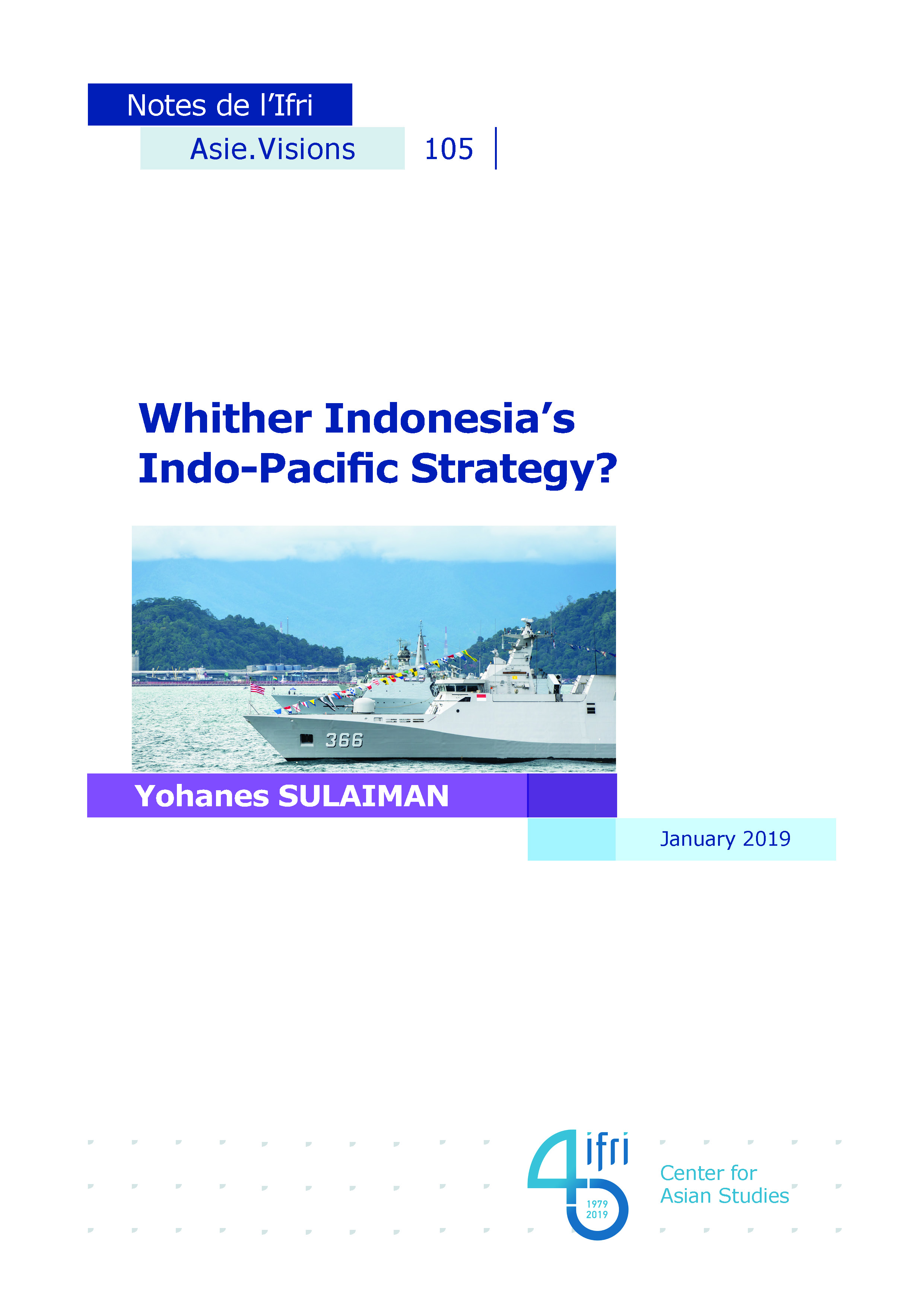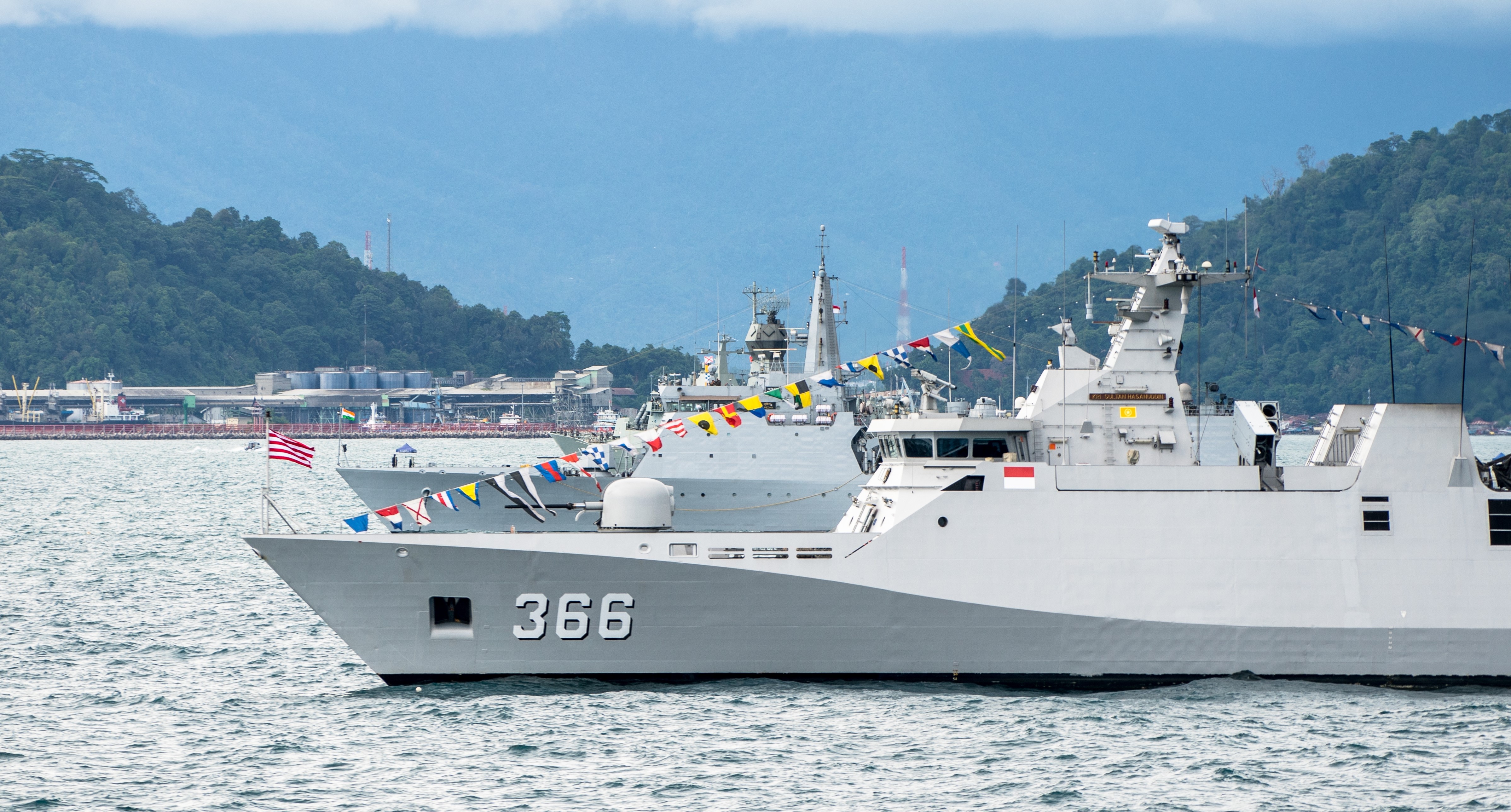Whither Indonesia's Indo-Pacific Strategy?

Indonesia’s Indo-Pacific strategy is driven less by a coherent national strategy than by a choice made due to the lack of alternatives resulting from Indonesia’s domestic and international weaknesses.

This results in Indonesia seeing itself as the key balancer in the region.
Indonesia’s sole goal is, in essence, to avoid being dragged into conflict that would threaten its bargaining power, while at the same time, maintaining the status quo in the region to preserve its bargaining power. Therefore, Indonesia takes a multilateral institutional approach that it hopes will lower tensions in the region and maintain the status quo both in the region and domestically.
This paper analyzes Indonesia’s overall Indo-Pacific strategy from the Yudhoyono to the Jokowi Administration by examining various domestic considerations and their implications. In terms of policy implications, the major take-aways are as follows:
- Indonesia’s Indo-Pacific policy lacks anything concrete beyond more economic and social-cultural cooperation.
- In the case of growing tension in the Indo-Pacific region, there is simply no possibility that Indonesia will join any military pact or work with others to contain China or other countries militarily.
- For Indonesia, the solution for any tension is more cooperation and more diplomacy to achieve a consensus that would put Indonesia as a key player in the Indo-Pacific region.
Download the full analysis
This page contains only a summary of our work. If you would like to have access to all the information from our research on the subject, you can download the full version in PDF format.
Whither Indonesia's Indo-Pacific Strategy?
Related centers and programs
Discover our other research centers and programsFind out more
Discover all our analyses
RAMSES 2024. A World to Be Remade
For its 42nd edition, RAMSES 2024 identifies three major challenges for 2024.

France and the Philippines should anchor their maritime partnership
With shared interests in promoting international law and sustainable development, France and the Philippines should strengthen their maritime cooperation in the Indo-Pacific. Through bilateral agreements, expanded joint exercises and the exchange of best practices, both nations can enhance maritime domain awareness, counter security threats and develop blue economy initiatives. This deeper collaboration would reinforce stability and environmental stewardship across the region.

The China-led AIIB, a geopolitical tool?
The establishment of the Asian Infrastructure Investment Bank (AIIB) in 2016, on a Chinese initiative, constituted an attempt to bridge the gap in infrastructure financing in Asia. However, it was also perceived in the West as a potential vehicle for China’s geostrategic agendas, fueling the suspicion that the institution might compete rather than align with existing multilateral development banks (MDBs) and impose its own standards.
Jammu and Kashmir in the Aftermath of August 2019
The abrogation of Article 370, which granted special status to the state of Jammu and Kashmir (J&K), has been on the agenda of the Bharatiya Janata Party (BJP) for many decades.









